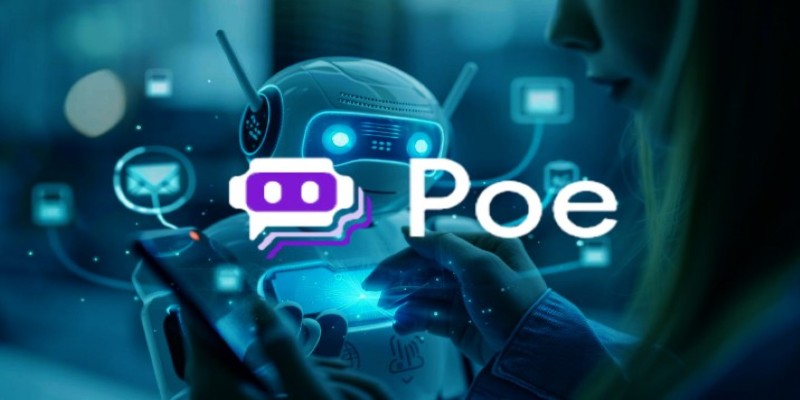Meta is riding artificial intelligence (AI) along as it is diving into the search of the future. Meta is rethinking our search for knowledge on sites like Facebook, Instagram, and WhatsApp as smart technologies emerge. Meta's new AI technologies grasp complete questions rather than depending on traditional keyword searches, providing faster, more pertinent replies. Users will be able to engage with search, therefore changing this process organically and more conversationally.
Meta wants to provide real-time responses with more customized results, thereby transcending simple links showing in search experiences. Meta's integration of artificial intelligence into its vast network marks the beginning of a new era in search that might permanently alter our interaction with the digital sphere. Let's investigate how Meta is altering the search experience with artificial intelligence.

Meta's New Direction in Search
Meta is starting to change its emphasis significantly. It is not only about social media these days. The business aspires to take the front stage on the search scene. Meta wants to enhance user search on sites such as Facebook, Instagram, and others by including artificial intelligence (AI). The goal is to provide faster, more exact responses that better-fit consumer wants. Meta's AI-powered search will grasp complete inquiries and offer contextually relevant answers, unlike conventional search engines, which depend on keyword matching.
Users of this more natural, intuitive approach will be able to converse in questions. Mark Zuckerberg, Meta's CEO, thinks artificial intelligence is the secret to future expansion. Given its enormous data resources and technologies, the firm is positioned to lead in AI-driven search. This audacious change demonstrates Meta's will to not only stay relevant but also transform our browsing and interaction with digital information.
AI Tools Already in Use
In the realm of artificial intelligence, Meta is not beginning from nothing. Already, it has included artificial intelligence in numerous of its systems in beneficial ways. Facebook, for example, employs artificial intelligence to suggest material based on a user's preferences. Instagram uses artificial intelligence similarly to create content depending on user activity. Meta is now advancing this technology by adding tools with more sophisticated search capabilities, therefore empowering consumers.
Meta AI, an intelligent assistant driven by big language models, is among the remarkable inventions. Apps like WhatsApp and Messenger have this assistant testing in which users may search for facts, ask questions, and get replies. Meta-artificial intelligence learns from interactions over time and can offer more customized answers, hence tailoring search results. This integration allows users to find the best response quickly. It reduces the need to read through many search results and improves the user experience.
Competing with AI Search Giants
With strong rivals like Google, Bing, and OpenAI already making moves in AI-powered search, Meta is joining a very competitive field. By offering complete responses in seconds, not only links to websites but also Google's chatbot Bard and Microsoft's integration of OpenAI's ChatGPT into Bing have set new benchmarks for artificial intelligence search engines. Meta has a special advantage in spite of the rivalry: its large user base and data across Facebook and Instagram.
Meta can provide a customized search experience without consumers having to migrate to a different search engine by adding artificial intelligence right into these extensively used systems. Meta has an advantage from this direct social media integration since it enables it to offer search results grounded on thorough user insights. Meta's access to enormous user data also helps it to hone its search engine capabilities and raise relevancy. Meta intends to reinvent user interaction with digital material, not only be another AI search tool.

Large Language Models Behind the Scenes
Meta's AI-powered search tools are fundamentally developed on large language models (LLMs). These models—including LLaMA ( Large Language Model Meta AI)—allow Meta's AI to grasp language at a deep level, therefore acting as its brain. Processing big datasets, learning patterns in language, and enhancing the AI's capacity to produce contextually relevant responses help these models be taught. A key component of Meta's AI search tools, LLaMA can generate text, answer inquiries, and hold conversations.
Being open-source, these models set Meta apart from rivals depending on closed systems. Meta promotes openness and group projects in the AI community by leveraging open data. Furthermore, highly valued Meta are justice and safety; it carefully filters negative material to guarantee that its AI offers consistent and trustworthy knowledge. As LLaMA develops constantly, Meta hopes to provide a more intelligent, responsive, and safe AI-powered search experience.
Search Inside the Metaverse
Meta means looking not just at the internet of today but also at the metaverse, the future of digital environments. Users of the virtual, interactive 3D metaverse can interact with digital surroundings. Conventional search engines won't operate in this new domain the same way. Users will engage by voice, gestures, and even body language. Meta's artificial intelligence systems are made to change with these developments. Users of a virtual environment might utilize hand gestures or ask inquiries aloud.
The experience will seem smooth and participatory since artificial intelligence will process these activities in real time and offer responses. This metaverse search vision will enable consumers to explore virtual worlds more effectively, providing a more immersive and interesting approach to locating knowledge. Meta is already testing some of these capabilities on its Horizon Worlds system. Meta is setting itself to change how we engage with digital environments in an increasingly linked, AI-driven world by getting ready for the metaverse.
Conclusion:
Meta's foray into AI-powered search is a daring action toward determining how we access knowledge in the future. Meta is making search more personalized, quick, and easy by adding artificial intelligence to well-known sites, including Facebook and Instagram. Meta is laying the groundwork for a more adaptable, user-friendly interface with its big language models and emphasis on multimodal search. Meta wants to provide faster, smarter responses that fit personal needs as it keeps innovating. This new path marks a significant change in the digital terrain, where artificial intelligence will be central in daily online contact.











